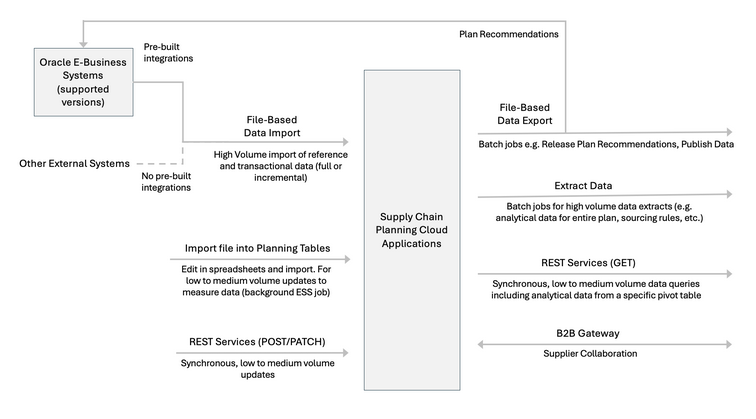Overview of Integration Types and Options
Several integration types and options are available in an Oracle Fusion Cloud Supply Chain Planning integrations.
Integration Types
These integration types are available in Oracle Supply Chain Planning.
Inbound
This type of integration refers to importing data into Oracle Supply Chain Planning from other Oracle Fusion Cloud products, external or third-party applications, or from Oracle E-Business Suite.
Outbound
This type of integration refers to exporting data from Oracle Supply Chain Planning to external or third-party applications.
Integration Options
Oracle Supply Chain Planning has flexible options for inbound and outbound integration with external systems that can be used during implementation. With a successful coexistence strategy, companies can gain advantages from using Oracle Supply Chain Planning and start realizing business benefits quickly. This diagram is a high-level representation of the integration of Oracle Supply Chain Planning with other Oracle products and third-party applications.

Inbound
You can import reference and transactional data from your internal system into Oracle Supply Chain Planning. These import options are available:
- REST APIs (POST and PATCH)
- SOAP Services for Oracle Fusion Cloud Global Order Promising
- File-Based Data Import (FBDI)
- Oracle ADF Desktop Integration (ADFdi)
- Update Planning Table Data Scheduled Process
Outbound
Oracle Supply Chain Planning has a repository of plan output that your internal systems can use. As part of the process integration, you can also export plan output such as supplies and demands, measure data, or reference data such as sourcing rule assignments. These export options are available: